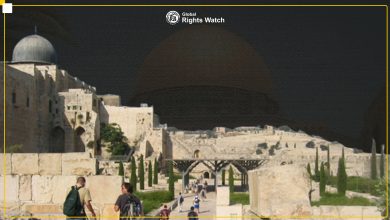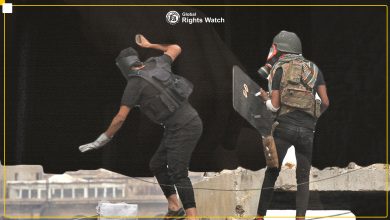Israeli Supreme Court Allows State to Commit War Crime
On 4 May 2022, the Supreme Court delivered its judgment on the state’s plan to expel some 1,000 Palestinians from their homes in the South Hebron Hills in the West Bank.
Residents of some Palestinian communities in the area first filed petitions 22 years ago, shortly after Israel expelled the 700 people residing in the area at the time on the grounds they were living within a “firing zone”. The court issued an interim injunction permitting the petitioners to return to their homes. In 2012, the petitions were struck out and new ones were immediately filed. Again, the court issued an interim injunction permitting the residents to remain in their homes until a judgment was handed down.
Now, 22 years after Israel first tried to drive these communities off their land, Supreme Court Justices David Mintz, Isaac Amit and Ofer Grosskopf dismissed the petitions. The court ruled that the military commander has both the power to declare a firing zone in the area, so new recruits can train there, and the power to force out anyone who is not a permanent resident.
In handing down this judgment, the court permitted the state to commit a war crime.
What does the judgment say?
The judge, who wrote the principal opinion, held that the petitions should be dismissed in limine. One reason, he explained, was that they were filed very late, years after the military commander declared the area closed. The other was “bad faith” on the part of the petitioners, who continued to build homes throughout the litigation thanks to the interim injunctions the court had issued, even though this construction was “unlawful and permit-less, given the lack of planning feasibility inside a Firing Zone.” The judge added that “[t]aking the law into one’s own hands and seeking equitable relief are incompatible.”
The judge devoted only two short paragraphs to international law. He held that the power of the military commander to declare an area closed does not contravene the provisions of international law. Even if it did, this would be inconsequential as “there is no dispute that when an express provision of Israeli law is at odds with international law, Israeli law supersedes.” The justice also asserted that expelling residents from their homes does not violate Article 49(1) of the Fourth Geneva Convention, which prohibits the forcible transfer of protected persons from occupied territory, citing two reasons: first, that the article is “a treaty law provision” that does not obligate the state; and second, that “this provision, which is designed to prevent mass expulsions in an occupied territory for purposes of extermination, forced labour or for various political ends, has nothing whatsoever to do with the case at hand.”
Lies, misrepresentation and errors in the judgment
1. Ignoring the true purpose of the declaration: Cementing Jewish control over the area
The Judge did not question the state’s claim that the firing zone was declared solely to enable military training, and brushed off the petitioners’ arguments that other motives were at play. However, an examination of Israel’s longstanding policy in the area along with the evidence provided to the court indicates that Israel is trying to take over land in the area, bring it under Jewish control and use it for its own purposes.
The true reason for declaring a firing zone in that particular area was explicitly articulated in a meeting of the Joint Government WZO Settlement Committee on 12 July 1981, chaired by Ariel Sharon, who was minister of agriculture at the time. According to a transcript of the meeting (in Hebrew), Sharon instructed the military to close off land in the South Hebron Hills for training.
2. Dismissing international law
The petitioners cited (in Hebrew) the relevant provisions of international law, elaborating on the duties of the military commander towards the Palestinian population, the prohibition on expelling residents of an occupied territory, the restrictions that apply to the occupying power regarding use of land in occupied territory, and the human rights that were violated by declaring the firing zone. The petitioners also attached two expert opinions by jurists who specialize in international law, clarifying these points. In its response to the petition (in Hebrew), the state addressed these arguments extensively, explaining why the declaration was legal under international law. Some of these points were also discussed during court hearings.
The Judge however, held that the provisions of international law were entirely irrelevant to the case. In his opinion, the fact that the military law applicable in the West Bank empowers the military commander to close off areas is enough. The notion that an occupying power is limited only by its own laws flies in the face of international law and contradicts both Israeli law and the jurisprudence of the Supreme Court itself.
3. Discounting the facts
The judgment implies there is an actual debate as to whether the petitioners – and other local Palestinian residents who did not join the case – indeed live within the firing zone. Yet the matter is undisputed: the existence of Palestinian communities in the area is backed by ample, unequivocal and incontrovertible evidence.
Contrary to the state’s claims, which the court accepted verbatim, the residents did not “invade” the area after Israel declared it a firing zone, nor are they trying to take it over by “establishing facts on the ground.” They have lived on the land for generations. Documents, affidavits, testimonies and opinions submitted to the court all prove that Palestinian communities were living in the area before Israel occupied it.
Records of shepherds leaving the town of Yatta and its environs and establishing villages in the South Hebron Hills date as far back as the early 19th century. The practice was seasonal at first: the shepherds would bring flocks to graze in the area and return to town in summer. Over time, the population grew, and more land was needed. Since the cost of land in Yatta was prohibitive, poorer families gradually took up permanent residence in the shepherding villages, setting up home in and around caves nearby. To this day, shepherds and farmers live in these dwellings and use the farmland and pastureland they inherited.
The justices of the Supreme Court have allowed Israel to commit a war crime. If it is carried out, they too will bear liability, as forcibly transferring residents of an occupied territory – within or outside it – constitutes a grave violation of international humanitarian law and is defined as a crime in the Rome Statute of the International Criminal Court (ICC).






